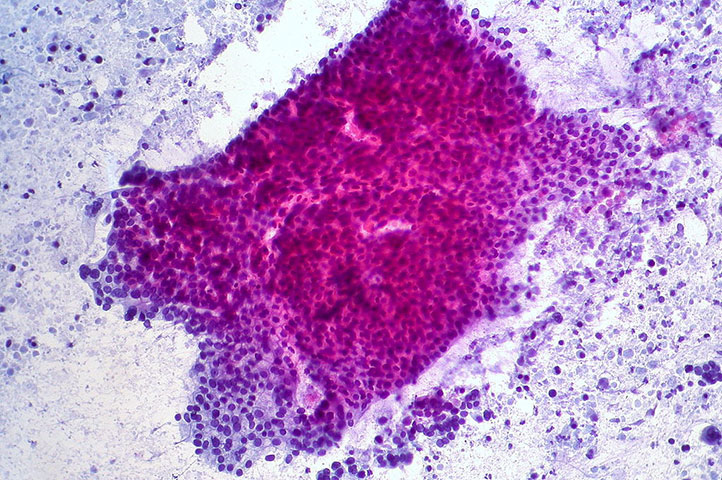Targeting Pancreatic Cancer Cell Growth

Ed Uthman from Houston, TX, USA; Wikimedia Commons
Can a new drug that inhibits cell growth be effective for pancreatic cancer treatment without causing too much toxicity?
The family of BET proteins, named after the bromodomain and extra-terminal domain present in their structure, play a vital role in gene transcription and (tumor) cell growth and make an attractive target for cancer researchers. But early versions of BET inhibitors proved too toxic, with not enough benefit to warrant widespread use.
A new BET inhibitor is now being tested in a phase I/II study in patients with advanced solid tumors, including pancreatic cancer.
How the New Drug Works
NUV-868 is a new BET inhibitor that has a much higher selectivity for a certain type of bromodomain (BD2) and specifically targets the BRD4 protein, which is a key member of the BET family. Due to its high selectivity focusing on one protein, the drug is expected to be better tolerated by patients. Preclinical studies have shown early promise for limited toxicity and anti-cancer efficacy.
The trial will be studying the experimental BET inhibitor NUV-868 both on its own and in combination with two other anticancer agents. Olaparib, a PARP inhibitor often used to treat breast cancer, and enzalutamide, a hormone blocker often used to treat prostate cancer. Researchers are looking to see if NUV-868 might enhance the activity of those two drugs.
Joining the Trial
The study is for patients with advanced solid tumors, including pancreatic cancer, whose cancer has progressed after treatment. Participants must have recovered from the serious side effects of prior treatments. All participants will receive NUV-868, the drug being studied, in escalating doses and in combination with the other drugs.
The trial is divided into three phases. Phase I participants receive NUV-868; in phase Ib participants are given NUV-868 plus either olaparib or enzalutamide. Both phases are designed to determine the safety and best doses of the treatments (either one single drug or in combination treatment). Phase II participants receive the recommended doses determined in the prior phases, tested alone or in combination for their effectiveness.
We encourage you to consult your physicians for clinical trials that may be right for you. The website ClinicalTrials.gov provides more details about this trial as well as many others. You can visit the Let’s Win Trial Finder for a list of all active pancreatic cancer clinical trials.





